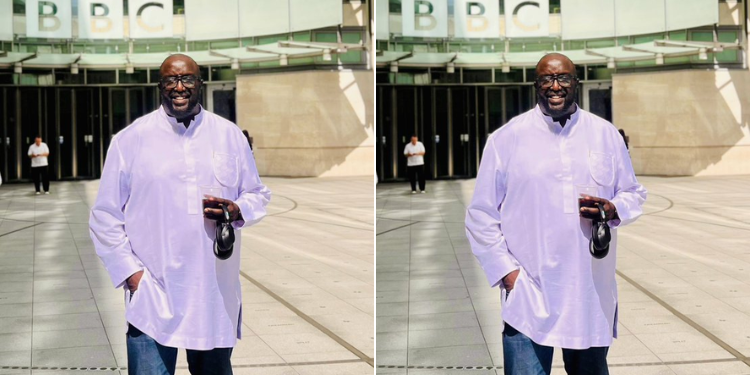Celebrated Ugandan journalist and broadcaster Allan Kasujja has officially ended his 13-year tenure at the BBC, marking the close of a transformative chapter in his career and East Africa’s media landscape.
In a heartfelt farewell message shared on Friday, August 15, Kasujja thanked colleagues, especially those he worked with on the Africa Daily podcast and the BBC World Service’s Newsday programme, for what he called “13 years of constant growth.”
“I didn’t think I’d last this long. I was ready to leave in 2014, but I’m glad I stayed. The global network I’ve built over the last 13 years will be valuable in the next chapter,” he wrote.
“It’s been transformative… but Africa’s story must continue to be told — because no one is coming to save us. No one cares as much as we do.”
Kasujja joined the BBC in 2012 as one of the lead presenters of Newsday, quickly becoming a trusted voice on African issues for global audiences. In 2021, he took on a pivotal role as host of the Africa Daily podcast, where he explored pressing social, political, and economic topics shaping the continent.
Throughout his tenure, he reported from across Africa, produced documentaries spotlighting the continent’s development challenges and triumphs, and often brought underreported African stories to global prominence.
In 2023, his impact was recognized when he was named among the 100 Most Influential Africans by New African magazine.
Born in 1978, Allan Kasujja began his journalism journey as a freelance writer and photographer for Uganda’s New Vision in his teens.
In the mid-1990s, he joined Sanyu FM in Kampala, later becoming a household name as host of Uganda’s version of Who Wants to Be a Millionaire? and the popular political talk show The Fourth Estate.
Between 2007 and 2009, he worked at 98.4 Capital FM in Kenya, before returning to Uganda to co-host The Big Breakfast on Capital FM from 2009 to 2012. His dynamic voice and incisive interviewing style helped shape public discourse on politics, governance, and identity.
Kasujja’s influence extends beyond journalism. He served as CEO of Gravitas, a Kampala-based civic engagement firm, and led The Sisi Project, a creative initiative promoting the inclusion of children with disabilities in mainstream schools through African music and art.
He also co-founded Black Swan, a PR and lobbying firm with an East African footprint.
His passion for African history, politics, and cultural heritage has made him a frequent moderator on high-level panels across five continents, discussing everything from climate justice to media freedom.
Kasujja holds a law degree from Makerere University. During Uganda’s troubled political era under Idi Amin, his family took refuge in Kenya, where he spent part of his childhood before returning to Uganda at age 12.
He is married to Sara Shalita, daughter of the late Bishop Ernest Munyambabazi Shalita of Muhabura. The couple wed on December 27, 2003, in a private ceremony at All Saints Cathedral in Kampala and are parents to a daughter, Keyana.
While Kasujja has yet to confirm his next move, industry watchers believe he is poised to take on a continental leadership role in media, advocacy, or civic engagement. His final message hinted at continued commitment to telling African stories, possibly through independent platforms.
“Africa’s voice must be heard — loudly, truthfully, and by us,” he said.
Allan Kasujja’s departure from the BBC marks not just the end of a chapter but the continuation of a mission — to ensure Africa tells its own story, on its own terms, to the world.



